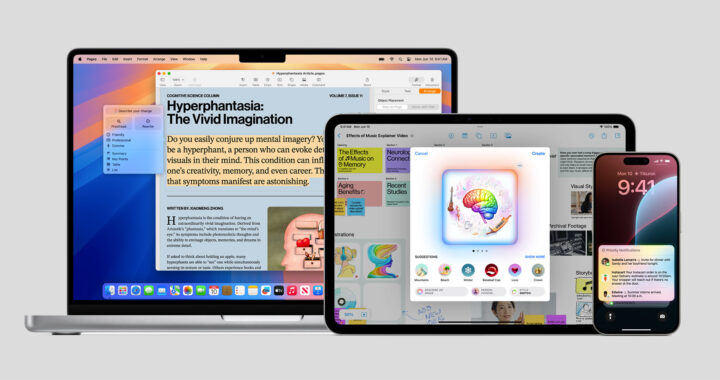Apple unveiled its own implementation of end-user artificial intelligence application during its Worldwide Developers Conference held on 10 June 2024. The company skipped calling it AI in favor of the Apple Intelligence branding. Nevertheless, despite initial public skepticism due to its seeming indifference toward the ongoing artificial intelligence revolution, Apple has demonstrated one of the key aspects of its artificial intelligence strategy. Apple Intelligence showcases the more practical application of AI through its tight integration with its products.
Top Key Features of Apple Intelligence: Integrating Personal AI Capabilities in iPhone, iPad, and Mac Devices
What exactly is Apple Intelligence? The entire presentation of Apple is straightforward. However, for those who missed the event or did not bother reading the reports and conversations that followed, some might think that it is similar to Galaxy AI of Samsung, the integration of Copilot in the Windows operating system of Microsoft, and the emerging presence of Google Gemini across cloud-based Google services. This is true. But Apple seems to do it better. Apple noted that Apple Intelligence is a personal intelligence system that combines the power of generative models with personal context to deliver intelligence that is useful and relevant to the user. The following are the key features of Apple Intelligence:
• Tight Operating System Integration: Apple Intelligence integrates AI features directly into iOS, iPadOS, and macOS operating systems to power eligible iPhone, iPad, and Mac devices. The implementation focuses on being a personal assistant that understands the user context and usage to deliver relevant features. It also further improves smart features that are already existing in various Apple operating systems.
• Foundation and Third-Party AI Models: One of the defining features of Apple Intelligence is that it utilizes multiple AI models. These include on-device language models, server-based language models that run on Apple servers, coding models, and diffusion models. Some of these models are trained in-house and represent the foundation models of Apple. Others come from third-party AI companies.
• Specific Focus on Personal Assistance: The system is specifically a set of features that aims to be helpful for everyday tasks. It does not intend to replace human intelligence but a complementary system that elevates the communication, productivity, and entertainment functionalities of eligible Apple devices. Apple Intelligence does this by leveraging the capabilities of the Apple Neural Engine AI accelerator.
• New and Improved Siri Functionalities: Siri had been the laughingstock of the greater technology community because of its capabilities that were branded outdated when compared to generative AI chatbots. Apple Intelligence now makes Siri better at understanding user requests and taking actions on behalf of apps. These come from having access to better AI models and on-screen awareness.
• Generative Artificial Intelligence Features: Eligible devices now have the capabilities to run generative AI applications. These include specific tools for writing called Writing Tools that include features baked in the operating system like proofreading and generating texts, prompt-based creativity tools for image and video creation that power the Image Playground and Image Wand, and solving mathematical equations.
• Integration of ChatGPT from OpenAI: Apple has inked a deal with OpenAI to access its GPT large language model via ChatGPT. This generative AI chatbot is integrated into both Siri and Writing Tools. Siri can tap into it for certain requests. Writing Tools use it for text generation. Users have an option to control when ChatGPT is used. Access to it is free and users subscribed to OpenAI can connect their accounts.
• Other Key Assistive and Smart Features: The set of features also includes other assistive and smart features like priority notification, which let users know what to pay attention to at a glance, priority messages in the Mail app, which elevates time-sensitive messages to the top of the inbox, and better audio recordings and transcriptions, which not only capture recorded voice but also generates transcripts and summaries.
• Notable Focus on Privacy Protection: Another one of the defining features of Apple Intelligence is its special focus on privacy. The company has earned a reputation for this. It now demonstrates two capabilities to do this. These are through on-device processing of information and the Apple Private Cloud Compute. Private Cloud Compute is a cloud service that processes information via secured servers.

